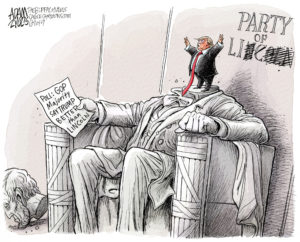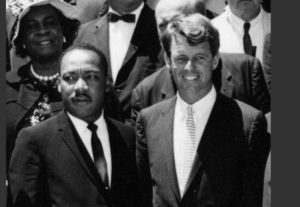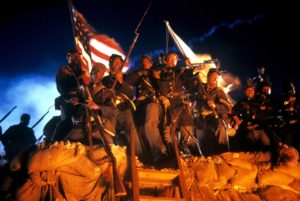Fighting Manifest Destiny
"A Wicked War: Polk, Clay, Lincoln, and the 1846 US Invasion of Mexico" is a probing and timely study of "the rise of America's first national anti-war movement""A Wicked War: Polk, Clay, Lincoln, and the 1846 U Invasion of Mexico" by Amy Greenberg is a probing and timely study of "the rise of America's first national anti-war movement".
“A Wicked War: Polk, Clay, Lincoln, and the 1846 U.S. Invasion of Mexico” A book by Amy S. Greenberg
In May 1846 Ulysses S. Grant, a 24-year-old lieutenant in the U.S. Army’s Fourth Infantry only three years out of West Point, saw his first action in Palo Alto, Mexico, in the opening engagement of the Mexican War. “I do not know that I felt any particular sensation,” he told a friend. “War seems much less horrible to persons engaged in it than to those who read of the battles.” The war, in which he served until its conclusion a year later, was a valuable school in which he observed at close hand, and learned much from, two great generals, Zachary Taylor and Winfield Scott, and solidified his friendships with other young officers with some of whom — and against some of whom — he fought a decade and a half later in the Civil War.
The Mexican War may have been Grant’s postgraduate university, but he hated it. “I do not think there was ever a more wicked war than that waged by the United States on Mexico,” he wrote in 1879. “I thought so at the time, when I was a youngster, only I had not moral courage enough to resign.” That passage serves as epigraph for Amy S. Greenberg’s study of the war, and as inspiration as well for the book’s title. Grant was right. The invasion of Mexico by forces of the United States was an entirely aggressive undertaking, engineered by a stubborn, duplicitous, humorless president — James Knox Polk — who was obsessed with visions of Manifest Destiny and believed it his life’s mission not merely to extend American holdings to the Pacific Coast but to extend the slave territory (he was himself a slaveholder) as far as possible.
Polk’s case for starting the war was trumped up. He insisted that “Mexico had insulted the United States to such a degree that honor required the southern neighbor be punished,” and he completely ignored “the many injuries done to Mexico by the United States — the annexation of Texas, the occupation of the Nueces Strip, the repeated insults offered by America’s incompetent and offensive minister.” His reasoning was steeped in racism: “Mexico, inferior in both race and power, must necessarily bend to the will of its neighbor. To those who suggested that it might be unseemly, even un-Christian, to attack a weaker nation, Polk argued that ‘we must treat all nations, whether great or small, strong or weak, alike.’ ” Polk “believed the domination of white over black was part of God’s plan,” that “domination of the strong over the weak, and white over black or brown, was not just the reality of slavery, it was also … right.”
Many Americans disagreed, some of them passionately. Col. Ethan Allen Hitchcock wrote in his diary: “We have not one particle of right to be here. … It looks as if the government sent a small force on purpose to bring on a war, so as to have a pretext for taking California and as much of this country as it chooses.” Greenberg writes that around the country “martial ardor cooled as the war dragged on, scores of volunteers died of disease, and reports of bad behavior on the front diminished the glory of volunteering.” An elderly woman in Philadelphia wrote: “I feel so much more sorrow & disgust, than heroism in this war. … When we were obliged to fight for our liberty — and rights — there was motive & glory in the strife — but to invade a country and slaughter its inhabitants — to fight for boundary — or political supremacy — is altogether against my principles and feelings.”
A Wicked War: Polk, Clay, Lincoln, and the 1846 U.S. Invasion of Mexico
By Amy S. Greenberg
Knopf, 368 pages
Greenberg, who teaches history and women’s studies at Penn State, has written not a conventional or comprehensive history of the war — many such books already exist — but an examination of how it was affected by, and altered the lives of, several people, notably Polk, Henry Clay and Abraham Lincoln. The first of these did achieve his ambitions — “during his single brilliant term, he accomplished a feat that earlier presidents would have considered impossible. … He masterminded, provoked, and successfully prosecuted a war that turned the United States into a world power” — but he left the White House in 1849 an ill and broken man and died three months later, his reputation to decline steadily over the years; this decline is not entirely fair, and Greenberg pushes Polk down still further with rather unseemly enthusiasm, but his presidency was at best a decidedly mixed bag. Clay, who spoke out courageously against the war, found his own presidential hopes dashed but continued his invaluable public service in the Senate. As for the much younger Lincoln, he too spoke out against the war, to little immediate effect, but in so doing made himself known and heard nationally and thus began his own progress toward the greatness that awaited him more than a decade later. Greenberg, whose academic credentials include degrees from Berkeley and Harvard as well as several awards for teaching and scholarship, comes to this subject with interests — perhaps biases is the better word — shaped by her own times and experience. Her focus on women’s history clearly has affected her evaluation of Polk’s wife, Sarah, a woman of “strong opinions and political acumen” whose influence on her husband seems to have been enormous. Similarly, having been born in the late 1960s and done her undergraduate studies during the 1980s, she came to maturity in an environment deeply sympathetic to the anti-war and peace movements.
Thus it can come as no surprise that “A Wicked War” is a study of “the rise of America’s first national anti-war movement.” In outlining her book’s purposes she writes: “Looking closely at the writings of politicians, soldiers, embedded journalists, and average Americans watching events in Mexico from a distance, it contends that the war was actively contested from its beginning and that vibrant and widespread anti-war activism ultimately defused the movement to annex all of Mexico to the United States at the close of the war. … ‘A Wicked War’ reveals how frequently volunteer and regular soldiers, as well as their officers, expressed their own ambivalence toward the conflict.” More than anything, though, it was Clay, then 70 years old, who, speaking in November 1847 in his home state of Kentucky “where pro-war fervor still ran high,” gave the most eloquent expression to the wrongs his beloved country had committed in the name of self-interest:
A Wicked War: Polk, Clay, Lincoln, and the 1846 U.S. Invasion of Mexico
By Amy S. Greenberg
Knopf, 368 pages
“The Sage of Ashland … had described the horrors of the war with blinding clarity, struck down the president as a liar, and ordered the people to protest a war that they … knew to be unjust. Speaking in a slave state, Henry Clay had condemned the expansion of slavery, and in no uncertain terms. He had linked the war in Mexico with the slavery issue in a way that few southerners dared. … By criticizing the war, Clay had jeopardized his political base in the South, which still fervently supported it. By condemning slavery in a proslavery state, he had risked devastating voter backlash. It was a great act of political bravery. And Clay had right on his side.”
The war, Greenberg writes, “raised fundamental questions,” about the moral cost of “dismantling a neighboring republic for the sole purpose of aggrandizement,” about the trustworthiness of a president’s word, about the ease with which the American public was manipulated into supporting “a war as contrary to American principles as this one.” There is more than a little oversimplification here and a strong whiff of presentism, but as recent history makes all too plain, those questions have yet to be satisfactorily answered.
Washington Post book critic Jonathan Yardley can be reached at [email protected].
©2012, Washington Post Book World Service/Washington Post Writers Group
Your support matters…Independent journalism is under threat and overshadowed by heavily funded mainstream media.
You can help level the playing field. Become a member.
Your tax-deductible contribution keeps us digging beneath the headlines to give you thought-provoking, investigative reporting and analysis that unearths what's really happening- without compromise.
Give today to support our courageous, independent journalists.







You need to be a supporter to comment.
There are currently no responses to this article.
Be the first to respond.